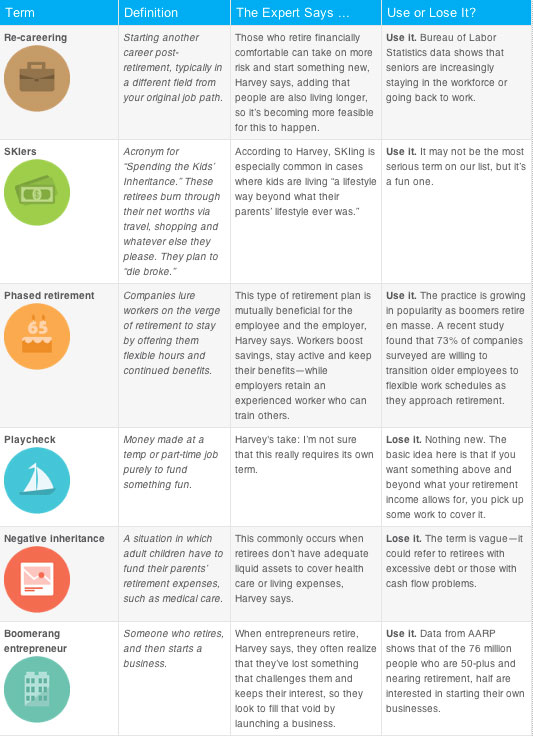Do you know what a 'playcheck' is?
Your guide to the latest retirement lingo

A free daily email with the biggest news stories of the day – and the best features from TheWeek.com
You are now subscribed
Your newsletter sign-up was successful

It goes without saying that retirement ain't what it used to be. The recession decimated the nest eggs of many Americans, and a tough job market has prevented a lot of people from putting money toward their golden years.
"The traditional industry definition of retirement is for people to save, turn 65, stop working and never set their alarm clocks again," says Catherine Collinson, president of the Transamerica Center for Retirement Studies. "But that's just not the reality today."
People are working longer (sometimes out of necessity, sometimes by choice), starting businesses in retirement, and even joining virtual retirement villages that help seniors with everything from getting rides to weekly doctor's visits to organizing theater trips.
The Week
Escape your echo chamber. Get the facts behind the news, plus analysis from multiple perspectives.

Sign up for The Week's Free Newsletters
From our morning news briefing to a weekly Good News Newsletter, get the best of The Week delivered directly to your inbox.
From our morning news briefing to a weekly Good News Newsletter, get the best of The Week delivered directly to your inbox.
So is this new face of retirement a good or a bad thing? Collinson says that it depends on your mind-set — some retirees see work as a burden, while others view it as an opportunity to try something new and stay engaged.
Given how much has changed, it's not surprising that there's a whole new lexicon of retirement terms out there. (What in the world is a SKIer, anyway?) So we asked Campbell Harvey, a Duke University finance professor and author of The New York Times Dictionary of Money and Investing, to weigh in on the new lingo.

More from Learnvest:
- What's your (retirement) number?
- How to avoid derailing your retirement
- 9 things people don't do with their retirement accounts but should
A free daily email with the biggest news stories of the day – and the best features from TheWeek.com
-
 The Olympic timekeepers keeping the Games on track
The Olympic timekeepers keeping the Games on trackUnder the Radar Swiss watchmaking giant Omega has been at the finish line of every Olympic Games for nearly 100 years
-
 Will increasing tensions with Iran boil over into war?
Will increasing tensions with Iran boil over into war?Today’s Big Question President Donald Trump has recently been threatening the country
-
 Corruption: The spy sheikh and the president
Corruption: The spy sheikh and the presidentFeature Trump is at the center of another scandal